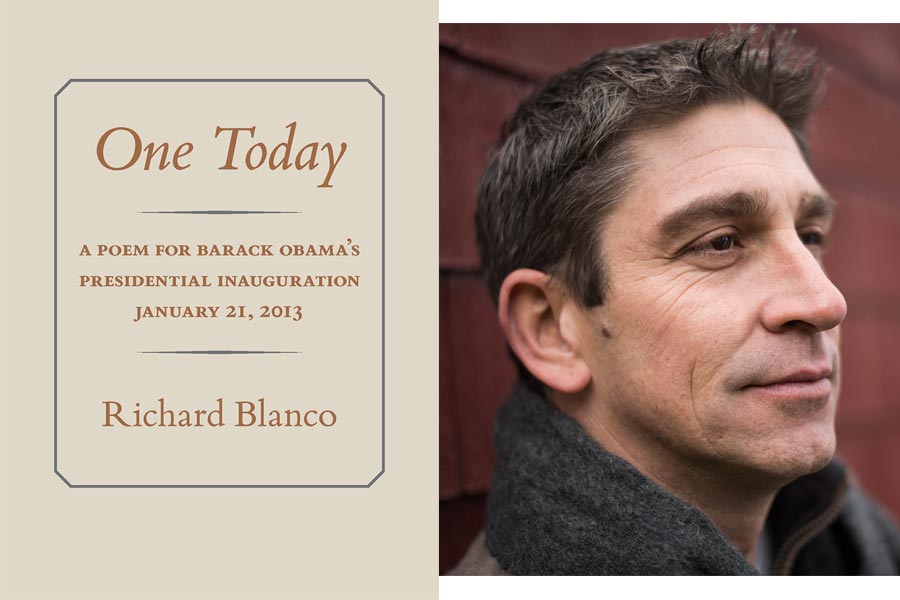Out author, poet and civil engineer Richard Blanco has steadily been on the go ever since he was picked to read poetry at the second inauguration of President Barack Obama — when he became the first gay person, the first immigrant, the first Latino and the youngest person ever to be a U.S. inaugural poet.
Since the inauguration, Blanco has received an honorary doctorate from Macalester College and has used his poetry to help heal the emotional wounds of the Boston Marathon bombings, writing “Boston Strong,” a poem he performed at the Boston Garden Benefit Concert and at a Boston Red Sox game at Fenway Park. He has also written and performed poems for organizations like Freedom to Marry, the Tech Awards of Silicon Valley and the Fragrance Awards at Lincoln Center.
“I haven’t been anywhere for more than two weeks at a time for the last 18 months,” Blanco said about his heightened profile since the inauguration. “I’ve just been on the road doing readings and conversations and workshops throughout the country. The inauguration, because it’s this unique mix of politics, pop and poetry, it has opened doors for poetry that are not the usual suspects, including commissioned poems for Boston Strong and the Tech Awards.”
Blanco is coming to the Free Library of Philadelphia Oct. 27 to talk about his new memoir, “The Prince of Los Cocuyos: A Miami Childhood,” which explores his upbringing as the child of Cuban immigrants growing up in pre-South Beach renaissance Miami and his coming to terms with his artistic and sexual identities.
One of the central figures in Blanco’s childhood is his grandmother, whose views on Blanco’s sensitive nature and artistic leanings kept her on a near-constant crusade to “butch” him up.
“My grandmother is a big main character in the book,” Blanco said. “She’s a very homophobic woman but she’s also very xenophobic. So anything that is culturally odd is queer. Something like Fruit Loops is queer. In writing the book, what I found was my grandmother’s homophobia wasn’t that ‘you’re evil, you’re going to hell’ kind of homophobia. It was more about tying into this idea of machismo. The crime isn’t being gay, it’s being effeminate. So her charge in our life was always to butch me up, sometimes in hurtful ways and in other times often in humorous ways. So in that sense, and I don’t mean to speak for all Latino groups, it certainly deals more with the pretense of manhood versus the idea that it’s a grave-sin kind of thing. I think I’ve found that difference both in my own life and in my travels.”
Blanco said the reaction from readers to his story has been “surprising and delightfully unexpected.”
“Some people say, ‘You made me laugh and cry at the same time,’ which has always been my intention as a reflection of the tragic-comic sense of being Cuban,” he said. “The book is meant to delight but as well bring some gravitas to the whole idea to becoming and coming of age. One of the things I wanted to do in the book is relay the psychology of the gay child and the gay adolescent and what is going on in our minds. It’s not a coming-out story, but in a way it is. It’s talking about all those thousands of little steps that lead to coming out. So we’ve been having conversations about gay youth these days and how we need to be there for them in terms of helping them along. Marriage equality has made great strides but there is still the youth that we need to remember and think about. So I have been having conversations about that with people and hopefully the book can be used almost as a young-adult reader in that respect in high school.”
Richard Blanco hosts a discussion of his memoir, “The Prince of Los Cocuyos: A Miami Childhood,” 7:30 p.m. Oct. 27 at Central Library, 1901 Vine St. For more information, call 215-567-4341 or visit http://richard-blanco.com/.

